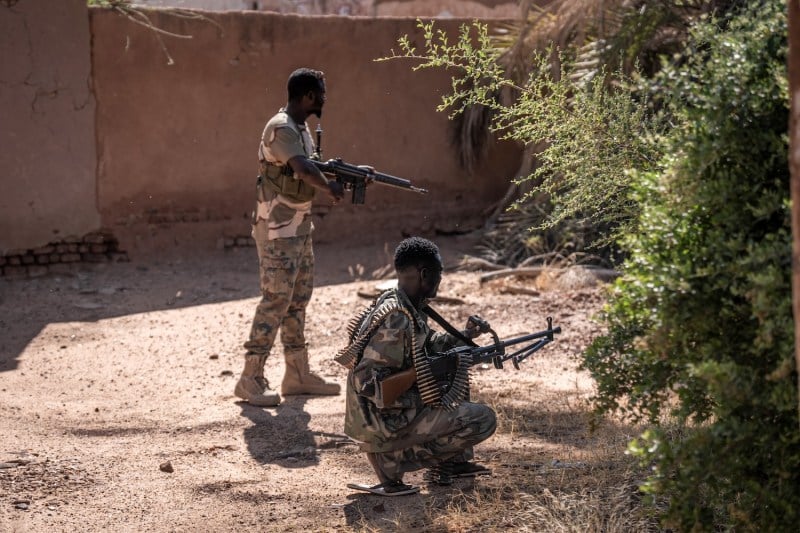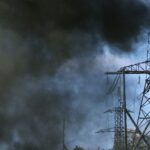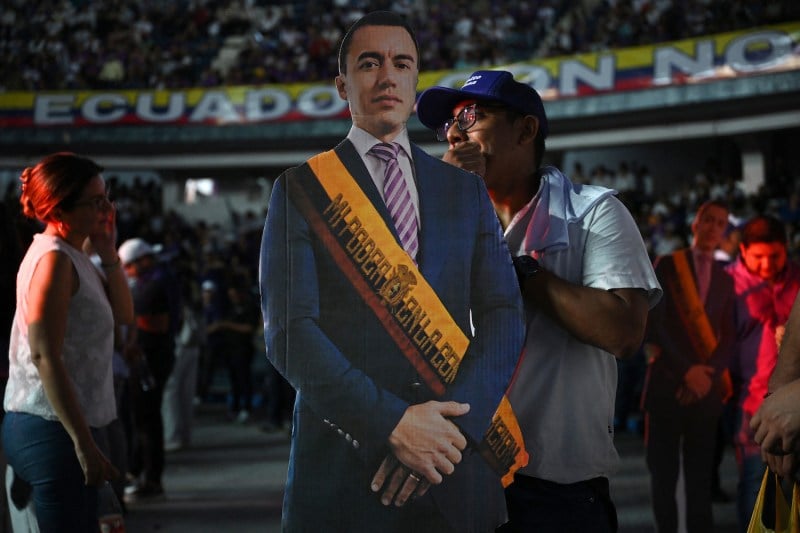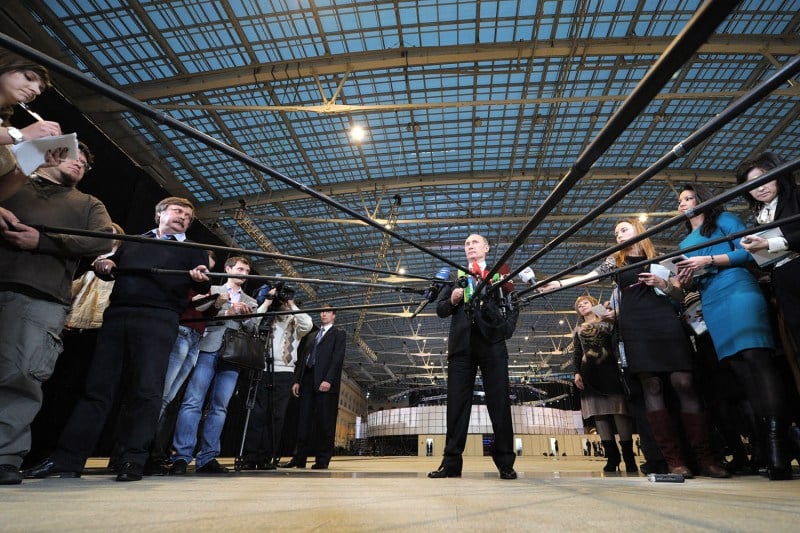Sudan’s Army Is Part of the Problem, Not the Solution

Sudan’s Army Is Part of the Problem, Not the Solution
The SAF is not a defender of democracy, and the activists joining its ranks are doing so out of necessity rather than ideology.
Sudanese army soldiers patrol an area in Khartoum North on Nov. 3, 2024. Amaury Falt-Brown / AFP
Yasir Zaidan’s article “Why Sudanese Democracy Activists Are Now Backing the Army,” published in Foreign Policy on Feb. 3, presents a misleading and dangerous narrative suggesting that Sudanese pro-democracy activists have willingly aligned themselves with the Sudanese Armed Forces (SAF).
While it is true that some activists have resorted to armed resistance against the Rapid Support Forces (RSF), this does not imply an endorsement of the SAF. Instead, it reflects a desperate act of self-defense.
Yasir Zaidan’s article “Why Sudanese Democracy Activists Are Now Backing the Army,” published in Foreign Policy on Feb. 3, presents a misleading and dangerous narrative suggesting that Sudanese pro-democracy activists have willingly aligned themselves with the Sudanese Armed Forces (SAF).
While it is true that some activists have resorted to armed resistance against the Rapid Support Forces (RSF), this does not imply an endorsement of the SAF. Instead, it reflects a desperate act of self-defense.
The SAF’s catastrophic failure to fulfill its primary role of safeguarding the Sudanese people has compelled civilians—many of whom were previously committed to nonviolent resistance—to resort to taking up arms.
At best, this alliance between activists and the SAF is a temporary and pragmatic partnership, born out of necessity rather than shared ideology. Many young Sudanese who joined the fight against the RSF did so because they were left vulnerable and unprotected by the state, not because they suddenly embraced the SAF’s legitimacy.
The structural failures of the SAF are not new. Over the years, its leadership has permitted warlords and militias to operate with impunity, even integrating them into its own ranks, including the RSF.
The Sudanese military also has a long history of using violence against unarmed protesters. During the pro-democracy demonstrations of 2018-19, SAF troops were responsible for killing, imprisoning, and torturing activists who dared to demand civilian rule.
Indeed, one of the most glaring omissions in the article is the fact that both the SAF and the RSF jointly orchestrated a coup against Sudan’s civilian transitional government in 2021. This coup was a direct response to reform initiatives aimed at removing the military from politics and dismantling Sudan’s various militias.
The article portrays this conflict as a struggle for democracy and Sudanese sovereignty, but the reality is far less principled. It is a power struggle between two factions that previously conspired to overthrow a fragile civilian government and seize control of the country. This war is not about national stability; it is a fight for dominance between two armed groups that have spent decades suppressing democracy.
To propose that the same institution responsible for creating this crisis is now the solution is illogical. Moreover, even as the SAF engages in combat with the RSF, its intelligence and security agencies continue to apprehend and detain some of the activists the article asserts are now supporting the military.
The activists who have taken up arms against the RSF have not forgotten that the SAF has been an equally oppressive force in suppressing civil liberties, cracking down on protests, and obstructing democratic progress for decades.
The article also overlooks the SAF’s own long history of atrocities when it claims that activists support the SAF because the RSF has looted their homes and killed their families. Independent international organizations, such as the United Nations, have condemned the SAF for its involvement in war crimes, including extrajudicial killings, forced disappearances, and indiscriminate bombing of civilian areas.
In regions recaptured by the SAF, numerous reports have surfaced of revenge killings, executions, and repression carried out by the army or its affiliated Islamist militias. This is the same military that is now being portrayed as a protector of democracy.
The true intentions of the SAF were revealed by one of its senior commanders, Yasser al-Atta. He declared that even after the war, the army intends to maintain control for what he described as five cycles of civilian rule.
This statement completely dispels any illusion that the SAF has any genuine plans to transfer power to civilians and support democracy in Sudan. Instead, its objective is to maintain indefinite control under a thinly veiled authoritarian regime. This is not mere speculation; it is the military’s explicitly stated plan. The SAF, like the RSF, aims to rule Sudan, not to protect its people.
History has repeatedly demonstrated that the Sudanese military is not an institution that safeguards democracy—it is one of its most significant obstacles. This conflict is not about democracy but rather about controlling Sudan.
Sudan’s civil war will continue to cause suffering for the Sudanese people regardless of who emerges victorious—the SAF or the RSF. The army’s long-standing role in suppressing democracy, committing human rights violations, and enriching its leadership at the expense of ordinary citizens makes it unfit to govern Sudan.
Once the war concludes, the struggle of democracy activists will inevitably revert to resisting the SAF’s rule. Sudan will only have a chance at achieving a genuine democratic future when the military is completely removed from politics. Until then, supporting the SAF as a purported defender of democracy is nothing more than a perilous illusion.
Mohammed Bahari is a Sudanese neonatologist who graduated from the University of Khartoum, trained in Ireland and Canada, and now practices in the U.K. He volunteered with Médecins Sans Frontières in Sudan and has been a member of various Sudanese diaspora organizations.
More from Foreign Policy
-

A security guard stands at the entrance to the U.S. Agency for International Development (USAID) headquarters on Feb. 3. DOGE Is Hacking America
The U.S. government has experienced what may be the most consequential security breach in its history.
-

A man with a beard in a suit and tie speaks behind a teleprompter. The logo for MSC is behind him. Vance Leaves Europe Gobsmacked
U.S. Vice President J.D. Vance delivered a rebuke on immigration and alleged censorship to a shocked Munich Security Conference.
-

A Palestinian girl carries a child through the rubble of houses destroyed by Israeli bombardment in Gaza City on March 3, 2024. Why Is the World So Polarized on Gaza?
The answer might be linked to race and colonization, explains author Pankaj Mishra, speaking on FP Live.
-

An attendee dressed like Uncle Sam waits for Donald Trump to arrive for a campaign rally at the Mosack Group warehouse on September 25, 2024 in Mint Hill, North Carolina. America Is Its Own Worst Enemy
It’s not unprecedented for a powerful country to simply shoot itself in the foot.







Join the Conversation
Commenting on this and other recent articles is just one benefit of a Foreign Policy subscription.
Already a subscriber?
.
Subscribe
Subscribe
View Comments
Join the Conversation
Join the conversation on this and other recent Foreign Policy articles when you subscribe now.
Subscribe
Subscribe
Not your account?
View Comments
Join the Conversation
Please follow our comment guidelines, stay on topic, and be civil, courteous, and respectful of others’ beliefs.
Change your username |
Log out
Change your username:
CANCEL
Confirm your username to get started.
The default username below has been generated using the first name and last initial on your FP subscriber account. Usernames may be updated at any time and must not contain inappropriate or offensive language.